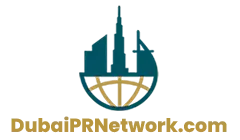
Under the Irtiqa initiative, NAMA Women Advancement builds capacity of 30 private sector participants with concrete gender-inclusive strategies for the workplace
Sharjah, June 23, 2022: In the first of its series of workshops aimed at advancing the business case for women's empowerment, NAMA Women Advancement has scaled up the capacity of 30 businesses in the UAE’s private sector with concrete tools, strategies, and resources to continue making progress on their gender equality journey. Under the theme 'The Future of Work is Gender Inclusive,' hosted under its Irtiqa initiative, NAMA discussed the importance of sustained commitment to incorporating a gender perspective into all aspects of an organisation to ensure meaningful gender integration in the workplace. Led by Linda Sabbarini, Gender Auditor and trainer, the interactive workshop titled ‘How to make Gender Equality a Strategic Priority in the Workplace’ delved into different gender concepts, unconscious gender biases, and barriers to women’s career development and advancement. Aimed at raising awareness and expanding knowledge on the benefits of inclusion and diversity in the workplace, the workshop also highlighted the business and social value of women's economic inclusion and served as the starting point for participants to learn how to assess progress on gender equality and develop a roadmap towards achieving gender-inclusive businesses. At the workshop, participants designed unique roadmaps for integrating gender equality within their respective organisations as they navigated through the five key stages of advocacy, strategic planning, action plan, implementation, and monitoring and evaluation. Gender diversity drives progress
“Gender equality is a basic human right; not a privilege,” said Linda Sabbarini, while emphasising the business case for diversity and inclusion to drive real progress. “On the macro level, gender mainstreaming practices in the workplace foster enhanced engagement and productivity and lead to greater economic and social prosperity as the greater the representation, the higher is the performance in terms of profitability,” she said. Citing the high rates of female graduates in the Arab world, Sabbarini said there was an urgent need to attract this vast and skilled talent pool to the workplace with gender-equitable work practices and policies including flexible working arrangements and equitable pay structures, among others. “Men and women bring different skills to the workplace, and the enhanced creativity that comes with a greater skills diversity leads to improved productivity. Diversity in leadership is good for business and studies show that companies with women in top leadership roles have consistently performed better,” she added. The workshop also offered insights into structural barriers that prevent women from growing professionally within organisations and explored ways to overcome the barriers to women reaching leadership positions. Driving change through the Irtiqa toolkit
Sarah Abdelgelil, Senior Executive (Gender Equity) at NAMA, introduced participants to the Irtiqa initiative and explained how the Irtiqa toolkit provides customised support to assist organisations make progress on their gender equality journey. The toolkit, a one-of-a-kind resource, offers specific recommendations and action points that are tailored to each company's context of operation and provides further support to implement concrete initiatives.
| 
